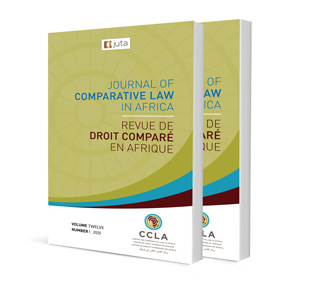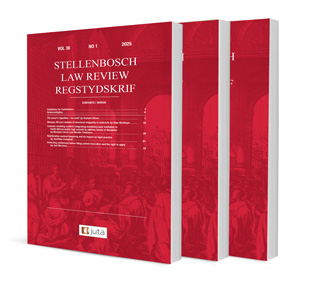Open banking and AI for financial inclusion in Tanzania

Open banking and AI for financial inclusion in Tanzania
Authors: Jean Chrysostome Kanamugire, Kennedy Joseph Komba
ISSN: 2521-2605
Affiliations: LLB; LLM (Environmental Law); LLM (Business Law) (UKZN); LLD (NWU), Senior Lecturer, Faculty of Law, North-West University; LLB; LLM (UDSM); MBA (MUST); LLD candidate, Faculty of Law, North-West University
Source: Journal of Comparative Law in Africa, Volume 12 Special Edition, p. 101–126
https://doi.org/10.47348/JCLA/v12/2025-SEa4
Abstract
Financial inclusion is a means to enable individuals and businesses to access and utilise a broad range of affordable and appropriate formal financial products and services to improve their financial well-being and standard of living. Advancements in innovation and technology, such as open banking and artificial intelligence (AI), offer opportunities for enhancing financial inclusion. Open banking ensures that consumers are provided the right to share their bank account or financial transaction data with third-party providers of their choice who will provide them with appropriate, convenient, and affordable financial services. This has the potential to enhance financial inclusion by extending the scope of financial service providers under the data sharing infrastructure to serve consumers with a broad range of financial services. Applying AI tools and techniques by banks and financial institutions increases efficiency, reduces operating costs, and enhances the capacity to analyse consumer data. Thus, it enables providing a broad range of affordable financial services tailored to customer needs. The regulation of open banking and AI in financial services fosters the expansion of financial inclusion in several countries. However, in Tanzania, there are still several challenges to implementing and using open banking and AI to expand financial inclusion, particularly in accessing and using banking services. Therefore, a qualitative research methodology is employed in this article to unravel these challenges. The challenges include data authorisation risks, data privacy and security risks, algorithmic discrimination, lack of regulation and supervision, lack of industry standards, inadequate legal frameworks for consumer data rights, lack of regulation of data aggregators, and lack of explicit provision to regulate open banking, and artificial intelligence to advance financial inclusion. This article discusses the challenges of regulating and implementing open banking and AI for financial inclusion in Tanzanian banks and non-bank institutions. The authors hope that the recommendations raised in this article will be useful to the relevant authorities in enhancing financial inclusion using open banking and AI in Tanzania.
